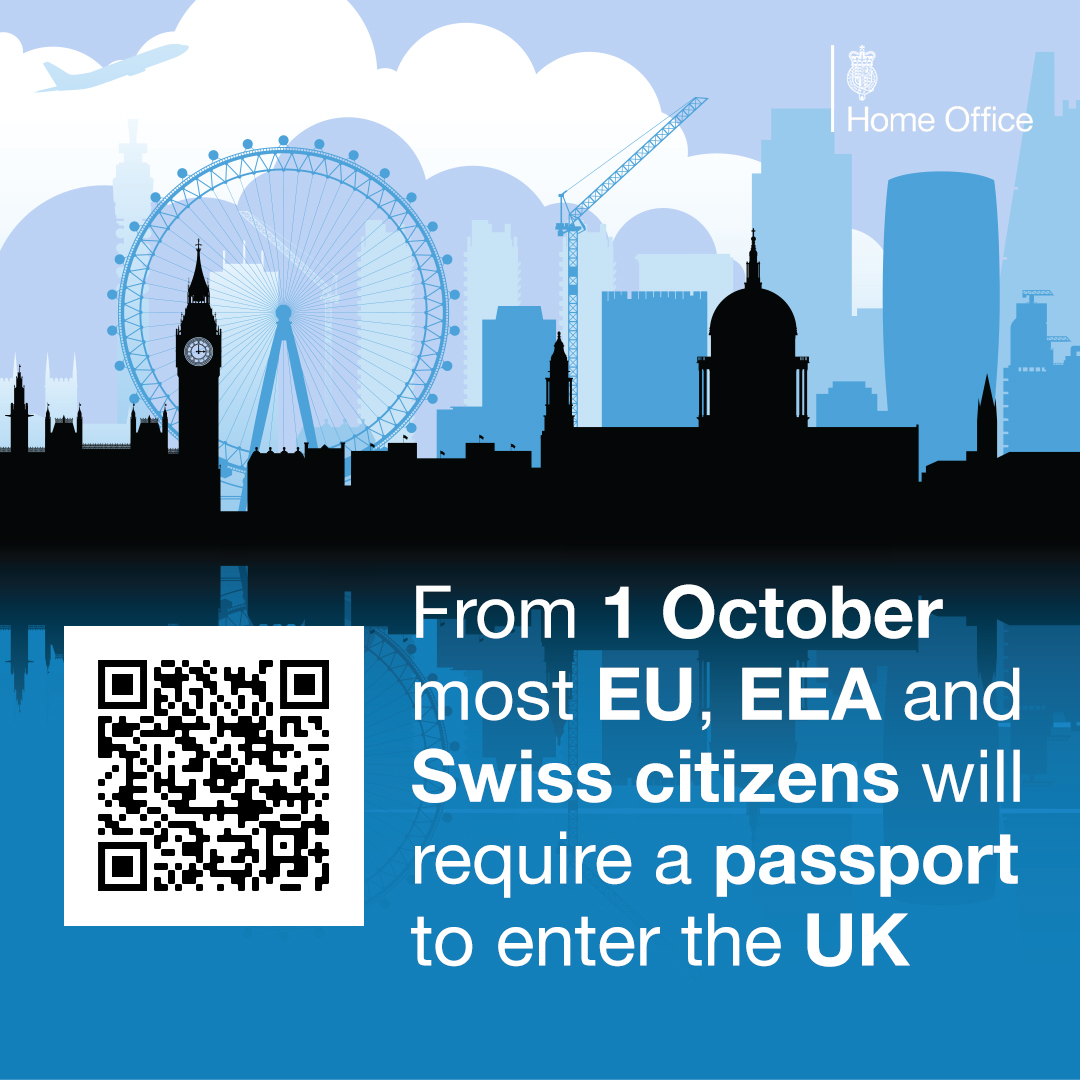As part of the Government’s ambition to build back a safer, fairer and more prosperous UK, the use of National Identity (ID) cards as a valid travel document to enter the UK is being phased out.
This means that from 1 October 2021, most EU, EEA and Swiss nationals will need to use a valid passport to travel to the UK. ID cards will no longer be accepted as a valid travel document, and it will not be possible to enter the UK using them.
The changes won’t affect British and Irish nationals using Gibraltar ID cards and passport cards; they can continue to use these to travel to the UK as they do now.
The changes also will not affect EU, EEA and Swiss nationals who have applied to the EU Settlement Scheme by 30 June 2021 or otherwise have protected rights under the Citizens’ Rights Agreements.
(Click HERE to visit the GOV.UK web page)
EU, EEA and Swiss nationals in these exempt groups can still use their national ID cards to travel to the UK at least until 31 December 2025. They’ll also be able to use them after that date, if the cards meet the security standards set by the International Civil Aviation Organisation.
The phasing out of ID cards will help strengthen the security of our border and bring EU, EEA and Swiss nationals in line with rules for travellers across the world entering the UK.
What’s Changing
From 1 October 2021, most EU, EEA and Swiss citizens can only travel to the UK using a valid passport, unless they have:
- applied to the EU Settlement Scheme, or have an application pending
- or otherwise have protected rights under the Citizens’ Rights Agreements.
Until this date, European Union (EU), European Economic Area (EEA) and Swiss citizens can currently travel to the UK with a valid passport ora national identity (ID) card.
In 2019, just under 10 million* people used an ID card rather than a passport to book a flight to enter the UK. This equates to around a third of all EEA and Swiss air passengers.
The change from 1 October means an ID card will no longer be accepted for travel to the UK, unless the exemptions apply.
Anyone travelling to the UK on an invalid travel document is liable to be refused entry at the border.
Why It’s Changing
ID cards are amongst the leastsecure travel documentsand they are often usedby organised crime groups. Phasing these out will help to deter those who wouldabuse the system.
The end of free movement on 31 December 2020 means EU, EEAand Swiss citizensnow follow the same rules for entering the UKas travellers from the rest of theworld.
The removal of ID cards will strengthen our borders and pave the way for a future digitised border, delivering a more streamlined and seamless customer experience for travellers entering the UK.
To help you navigate the changes of business travel, we’ve created the brand-new Traveller Toolkit. This invaluable online resource is packed full of easy-to-use guides and checklists for every stage of every journey. We detail exactly what you need to know and do before, during and after your trip.
You’ll also find innovative and interactive virtual trips, which walk you through each step of being at the airport, on the train and in the hotel. You can even check the travel restrictions and health status of your destination with our comprehensive COVID-19 Country Tracker, updated five times daily to ensure you have the very latest information to help keep you and your travellers safe.
Travel is changing. But with common sense and a good TMC behind you, travellers should have the confidence to once again take to the skies. It’ll soon be business as (un)usual.


